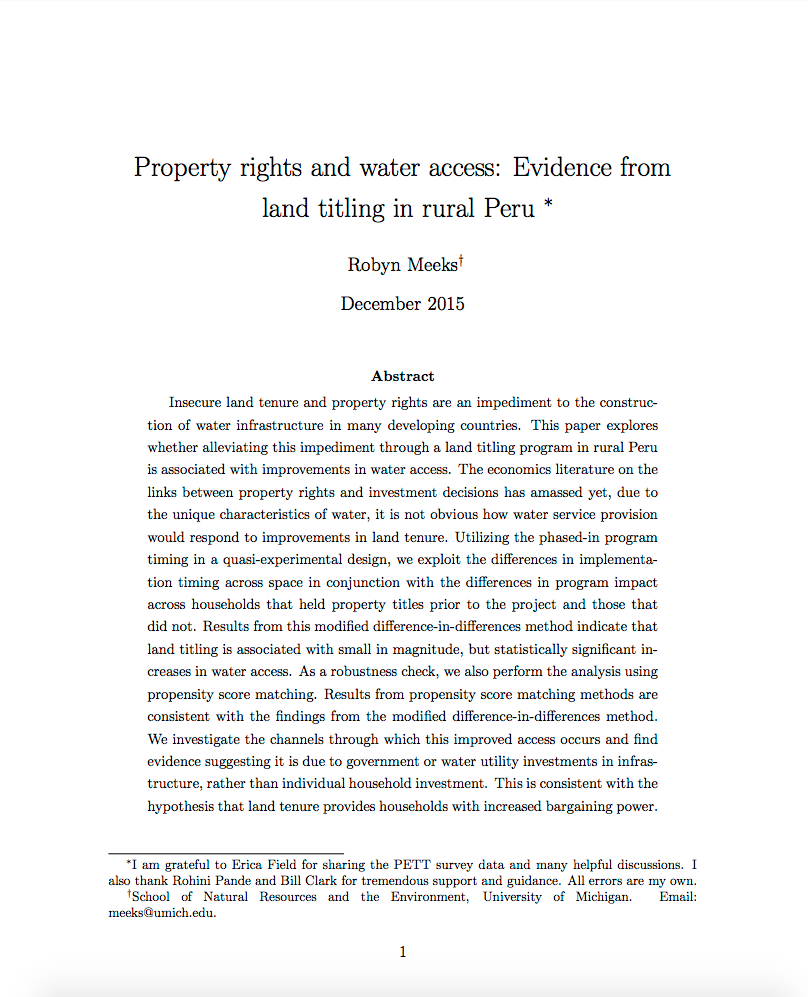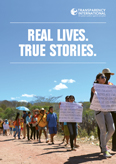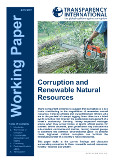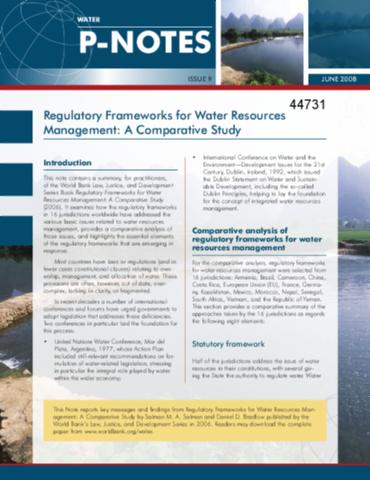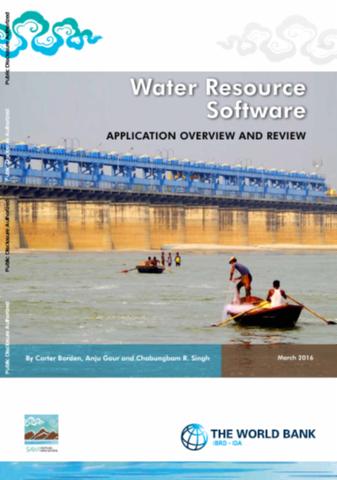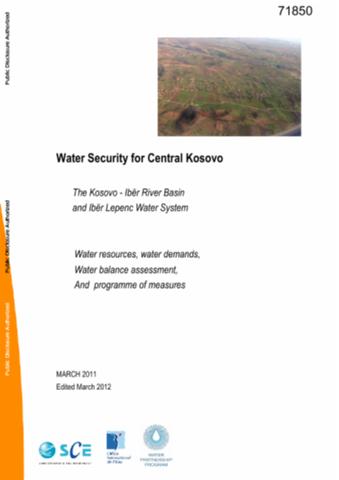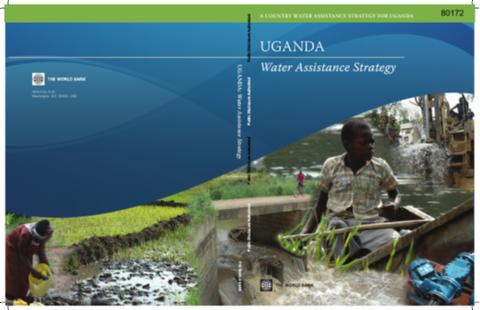Derechos de agua
AGROVOC URI:
Water resources management guidelines in Ruaha Basin in Tanzania
a reassessment of the West's first great water transferOwens Valley revisited
Gender inequalities in access to and benefits derived from natural fisheries in The Barotse Floodplain, Western Province, Zambia
BarotseFloodplain, Western Province of Zambia
•Multiple demographic, socioeconomic and climatic challenges and vulnerabilities
•Variety of livelihood opportunities: flood –provide fish & aquatic plants; water subside –fertile ground to cultivate crops
•Cattle, forest products, fish trade, piecework
Property Rights and Water Access: Evidence from Land Titling in Rural Peru
Insecure land tenure and property rights are an impediment to the construction of water infrastructure in many developing countries. This paper explores whether alleviating this impediment through a land titling program in rural Peru is associated with improvements in water access. The economics literature on the links between property rights and investment decisions has amassed yet, due to the unique characteristics of water, it is not obvious how water service provision would respond to improvements in land tenure.
REAL LIVES, TRUE STORIES
As many as two in three people worldwide believe that ordinary citizens can make a difference in the fight against corruption. Whether it’s taking on an abusive school system, exposing a crooked driving instructor or blocking the re-election of a corrupt mayor, these individuals are demonstrating their power to bring about lasting change in their communities.
WORKING PAPER 01/2007: CORRUPTION AND RENEWABLE NATURAL RESOURCES
There is important evidence to suggest that corruption is a key factor contributing to the degradation of renewable natural resources. Forestry officials and law enforcement officers who are in the pockets of corrupt logging firms often turn a blind eye to activities that threaten the sustainable management of a forest’s biodiversity. Similarly, fishery inspectors endanger stocks when they accept bribes to ignore official quotas for trawlers.
Lei da Agua em Moçambique (Lei N.16/91)
Lei da Agua em Moçambique (Lei N.16/91)
Regulatory Frameworks for Water Resources Management : A Comparative Study
This note contains a summary, for practitioners, of the World Bank Law, Justice, and Development Series Book Regulatory Frameworks for Water Resources Management: a comparative study (2006). It examines how the regulatory frameworks in 16 jurisdictions worldwide have addressed the various basic issues related to water resources management, provides a comparative analysis of those issues, and highlights the essential elements of the regulatory frameworks that are emerging in response.
Water Resource Software
This document provides an overview of how water resource software’s (WRS) are used to manage water resources issues, criteria for WRS selection, and a high level review of WRS currently available that central and state governments of India can use for water management. The water resource issues covered include water allocation and planning, flood management, groundwater management, conjunctive use, water quality, and sediment transport.
Water Security for Central Kosovo
Kosovo is a small and young state that gained an interim United Nations (UN)-administered status in the wake of the Dayton peace accord only in 1999; it declared independence in 2008. Compared to neighboring countries, it is still lacking in its basic infrastructure and its administrative and technical skills. In addition, with the onset of the War in Yugoslavia in 1992 most investment and normal maintenance came to a standstill.
Uganda Water Assistance Strategy
Over the past 25 years, Uganda has experienced sustained economic growth, supported by a prudent macroeconomic framework and propelled by consistent policy reforms. Annual Gross Domestic Product (GDP) growth averaged 7.4 percent in the 2000s, compared with 6.5 in the 1990s. Economic growth has enabled substantial poverty reduction, with the proportion of people living in poverty more than halving from 56 percent in the 1992 to 23.3 percent in 2009. However, welfare improvements have not been shared equally; there is increasing urban rural inequality and inequality between regions.


